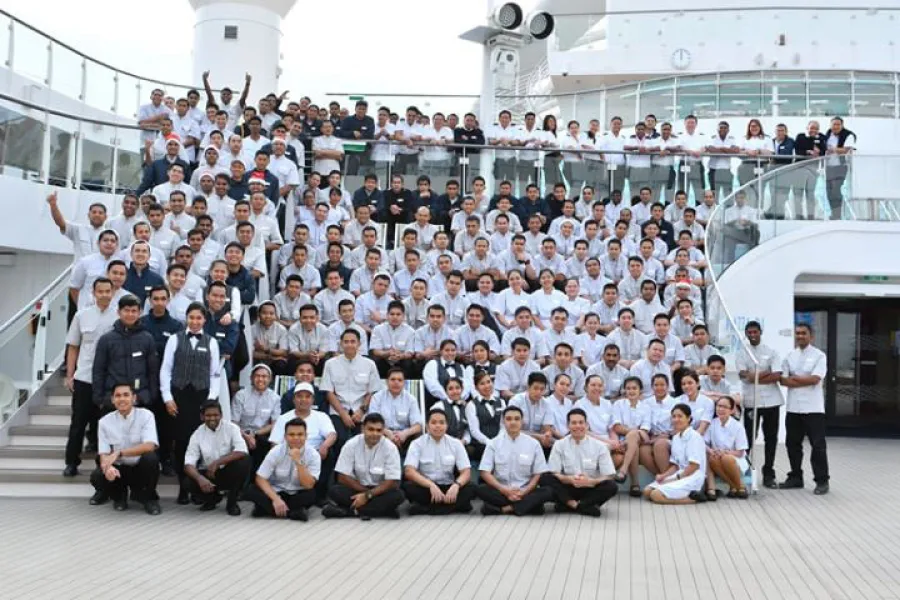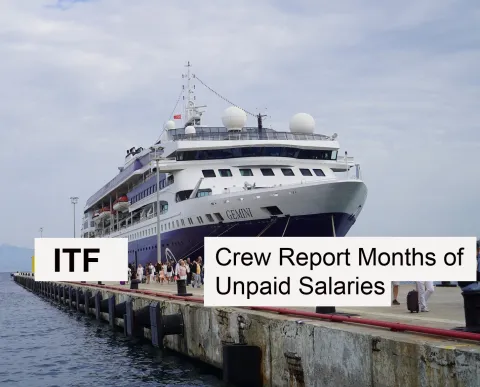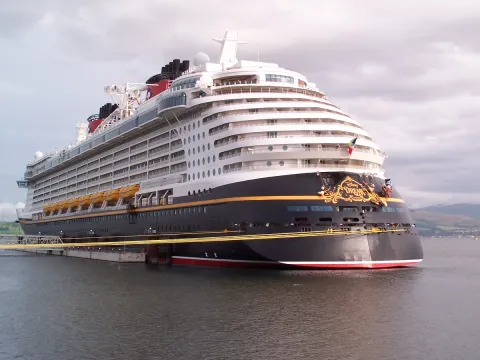
If you have ever worked on the land and the cruise ship, it's almost incomparable; career progression on the cruise ship comes much different than one on the land. It's much harder, in my own opinion. A career on the land relies on many different factors, but a career on the ship can depend on different circumstances.
Although not everyone wants to have a career at sea, many job seekers have already set their sights on an advancing career in the cruise industry. There are some common questions for those that are starting out with their first job on a cruise ship. How and when can you expect to be promoted, and what skills do you need to achieve a promising career in the cruise industry?
Entry Level Cruise Ship Jobs
Most people that begin their careers at sea have started in an entry-level job. Some crew members are happy with the one job they were hired to do and continue with the same position for years. Crew members also choose to work on cruise ships as a break from "real world" jobs and want to do this type of life for a couple of travel contracts and fun.
Others aren't so content to stay in the same position for too long, with ambitions to advance their career as quickly as possible. Some start their entry-level job with limited experience but lots of drive. Others may be overqualified but have proven to a recruiter that they can take direction and be managed.
Importance of Shipboard Experience
Once you work onboard, you'll understand the importance of shipboard experience. When you read the various cruise ship job descriptions, it is evident that all supervisory or management positions require or prefer the job seeker to have previous shipboard experience. The main reason is that working on a cruise ship differs from many other industries.
When you have shipboard experience, it means that you understand the seven-day workweek. It also means that you have an in-depth knowledge of emergency training, possibly with additional training certificates. Furthermore, understanding how a cruise ship operates in terms of how all the departments interact, the hierarchy onboard, and daily operations is important.
Choosing a Career Path in the Cruise Industry
The career path of a crew member isn't always direct. A crew member may start in an entry-level position in one department but may show enough skills to be transferred to another department. A person can quickly rise with the right training, skills, experience, personality, drive, and opportunity.
For example, a crew member may start as a Galley Steward, change departments after a couple of contracts, and work as a Guest Services Associate. A few contracts later, this same crew member may be promoted to Crew Agent, a one-striped officer position. After a few years and additional training, this person may be promoted to Crew Manager. It will be soon that this employee may be qualified to be a Human Resources Manager.
Such a career path may not be for everyone. The title of supervisor, manager, or senior officer means more than just a bigger paycheck and more responsibility; it also means less free time, less time ashore, and less socializing. Yet, this may be what you want to get yourself into.
Training and Skills Required for Promotions
To be offered a promotion to the next level or a different department, the candidate needs the best combination of training and skills. Although cruise lines tend to promote more frequently from within, they occasionally choose an applicant from outside the cruise industry. Either way, to be considered for a promotion, you must understand which skills and training are required.
Depending on the department will determine which skills are the most sought-after as a requirement for a promotion. Speaking more than one language is one of those skills that can be a tiebreaker when it comes to a manager deciding which person to promote. Proven managerial skills, customer service, and sales experience are valuable for many departments.
Emergency training is also important when it comes to selecting who should be promoted. Courses such as Basic Firefighting and CPSC (Certificate of Proficiency in Survival Craft) are usually required before a person can be promoted to a managerial position.
Many courses are offered onboard, whereas many cruise lines may pay for some employees to take additional courses while on their leave. Even if the company doesn't pay for additional training, if you are serious about getting a promotion, having the proper training is required.
Competition for Promotions in the Cruise Industry
Even with all the right training, experience, and skills, there is still so much competition for supervisory and management positions. More and more crew members are being hired with higher education and plenty of work experience and skills. Everyone must wait their turn and prove themselves before getting the opportunity for a promotion.
The best thing crew members can do for themselves is to continue getting more training and skills. Be flexible, rarely say no, go above and beyond your responsibilities, get along with everyone, and ensure that the passengers also love you. Being at the right place at the right time doesn't hurt, either.
An Ugly Truth About Cruise Ship Promotions
Unfortunately, just as in land-based jobs, the cruise industry is guilty of promoting people who aren't as deserving as others. Whether it's based on nationality, "kissing up" to a supervisor, being at the right place at the right time, or knowing someone in head office, it's a fact that some crew is promoted for the wrong reasons.
Some crew complains that there are "mafias" onboard, and if you aren't part of the "mafia," then it's challenging to go ahead with your career. Just like shore-based jobs, a supervisor may give a promotion based on their friendship with a crew member. Furthermore, some crew feel that a person may get promoted because they are a "sapo" (Spanish term for "informer" or "snitch.”)
Do You Really Want a Cruise Ship Career?
It is rewarding for those who want to work hard and have the determination to make a cruise ship job a career. Plus, the skills, training, and experience you gain from working on a cruise ship will be transferrable to plenty of other jobs you apply for. Even if you only have a short career on a cruise ship, the fact is that it will look great on a resume. Making a career on the cruise ship can be hard due to many unfair treatments on board the ship. Yet, if you choose this career, you must fight all the way. Good luck with everything, and God Bless you! Have a safe contract!
Crew Insights
Articles and experiences shared by crew members working on cruise ship. Find out more about ship life at sea together with tips and advices for first time crew members and cruise oldtimers.












